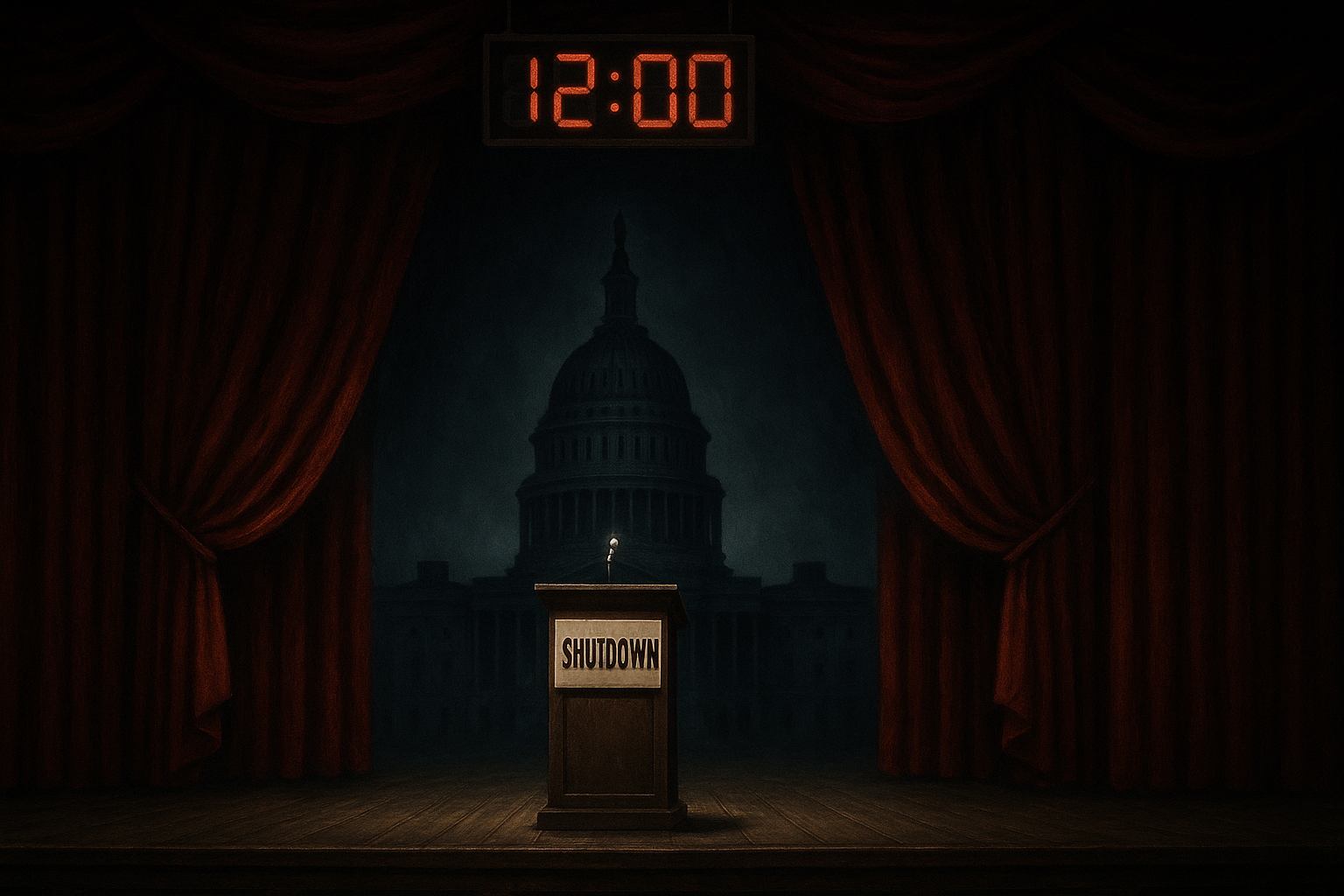The clock struck midnight, and here we are again—stuck in the familiar purgatory of a government shutdown. I've covered these fiscal showdowns since the Obama years, and the script barely changes: posturing, finger-pointing, and ultimately, millions of Americans caught in the crossfire of Washington's dysfunction.
What makes this particular meltdown so maddening? It's the sheer predictability of it all.
The shutdown theater follows its own twisted game theory, where rational actors make collectively irrational decisions. Both parties have calculated—with cold electoral math—that appearing "tough" to their base outweighs the practical consequences of government closure. It's politics over people, plain and simple.
This time around, enhanced ACA subsidies became the hill everyone decided to die on. Democrats dug in their heels on preserving them; Republicans refused to budge. Meanwhile, federal workers are updating their résumés and canceling vacations.
Look, I've interviewed enough shutdown victims over the years to know the human cost. There's the TSA agent working without pay who can't afford childcare. The national park ranger telling disappointed tourists to turn around. The contractor who, unlike federal employees, will never see back pay.
The fiscal irony would be laughable if it weren't so tragic. We shut down government to save money, yet previous shutdowns have cost billions. The 2018-2019 episode—remember that marathon 35-day disaster?—slashed GDP by about $11 billion according to CBO estimates. Penny-wise, pound-foolish doesn't begin to cover it.
What's particularly fascinating this time is Sen. Fetterman breaking ranks. "It's a sad day for our nation," he said (and who could argue?), while signaling willingness to support the Republican proposal. It's a rare moment of someone placing functional governance above partisan purity.
Wall Street, meanwhile, barely flinched. The VIX—that famous "fear index"—hardly registered a blip. After decades of these fiscal cliffhangers, the markets have essentially priced in dysfunction as America's default setting. That's... not exactly a national point of pride.
The machinery of shutdown moves with its own bizarre bureaucratic rhythm. "Orderly shutdown procedures" (talk about your oxymorons!) are now underway. Essential personnel report to work unpaid while others face uncertain furloughs. And the timing couldn't be worse—agencies scrambling with fiscal year-end spending now face a procedural nightmare.
I spoke with three mid-level managers at different agencies yesterday. All expressed the same weary resignation. "We've been through this drill before," one told me, requesting anonymity to speak candidly. "The problem is, each time it happens, more good people decide government service just isn't worth the hassle."
The political calculation—when will one side blink?—now begins in earnest. These standoffs typically resolve when polling shows one party suffering disproportionate blame. Until then, OMB Director Vought's midnight shutdown memo stands as a testament to our broken politics.
(Having witnessed nearly a dozen funding fights firsthand, I'd wager we'll see resolution within a week. But don't quote me on that.)
Perhaps what's most disturbing isn't this particular shutdown but how normalized these governance crises have become. We're the world's largest economy, a supposed superpower, yet we repeatedly self-sabotage over political theatrics that accomplish... what, exactly?
For businesses and citizens alike, the best approach is treating these dramas as background noise rather than existential threats. The fundamentals continue regardless, though with unnecessary friction that benefits absolutely no one.
By the time you're reading this, maybe they'll have hammered out some face-saving compromise. If not, welcome to shutdown limbo—where essential functions sort of continue, non-essential ones abruptly pause, and everyone pretends this is a perfectly normal way to run a government.
It isn't.
